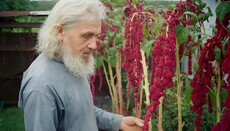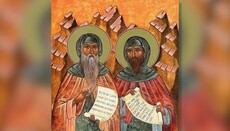Heaven’s Central Bank: The Parable of the Talents Unveiled

Earthly life is given not for complacency but for capital accumulation in the imperishable bank of eternity. Reflections on the justice of God's judgment.
The Parable of the Talents is a story about how earthly life is given to us not to be content with "ourselves, our meal, and our wife." It is given so that we may accumulate capital in the imperishable Central Bank of the Kingdom of Heaven, earning eternal interest. The parable is about self-examination: “What is my capital? What have I multiplied? What dividends have I received?”
The principle of equality in the spiritual world
I do not know by what principle this bank will accrue interest. But it seems to me that the principle of equality will apply here. In earthly life, the bank does not take into account a person’s initial ability to accumulate money. Can we assume that the same law operates in the spiritual world?
The same commandments are given to everyone, but the opportunities for their fulfillment are not equal.
Some are born with a soul that easily falls into rage and anger, while others are born with a calm and peaceful nature. Some have a greater inclination towards contemplation and prayer, while others tend to an active and energetic life. It is easier to achieve success in multiplying those talents that were originally easier to develop. The weight and value of one talent of love from a person prone to irritation will be equal to ten talents of love from someone who has been capable of forgiveness and compassion since childhood.
Some stories from hagiographic literature that have reached us say that this will be the case. One of them, for example, tells how the abbot of a monastery was surprised to learn that in God's eyes, the greatest ascetic in his monastery was a monk whom the abbot considered one of the worst. And that's because he had to make much more effort to restrain his anger than other monks.
St. Paisios figuratively speaks of the same: "Someone may do a hundred good deeds and still go to hell, while another may commit one murder and end up in heaven. Because the former could have done much more but chose not to, while the latter could have killed many more but managed to avoid it."
To whom much is given, much will be required; and to whom little is given, little will be required.
On the one hand, understanding this is comforting for us; on the other hand, it disciplines: the balance in the Heavenly bank must be exactly the amount for which the account was opened.
Many of the saints are spiritual geniuses; we need to understand this. God will not demand genius from us. He will require only what we are capable of. He can honor the soul of a layperson with the same honor as the soul of a great ascetic. The mother of Ephraim of Katounaki took the schema with the name Maria just two days before her death. She was distinguished by extraordinary depth of humility and meekness. When she died, the hospital ward where Maria was staying was filled with fragranсу. The doctors decided that one of the monks had brought myrrh to the hospital and anointed her body. But then it turned out that no one had entered the room. Even the clothes of this woman emitted a subtle fragrant smell.
Elder Ephraim was granted a vision of his mother's posthumous fate: "I saw my mother going to Christ! 'Welcome, Maria, welcome!' the Savior says to her and blesses her... An ordinary village woman, illiterate, and what she achieved! When I prayed for her, I received, not gave, I was filled with joy. We work here for years to achieve such a state..."
The struggle with anti-talents and the path to the true self
Along with talents, that is, abilities that we need to multiply, we are also born with anti-talents, traits we must work to eradicate.
The struggle with innate flaws requires no less, if not significantly more effort than multiplying talents.
Someone was born with a tendency to depression and carries it as a heavy cross. Meanwhile, the devil whispers in their ear: "You are constantly in despair; there is no hope for your salvation." We need to understand these subtle tricks of the enemy of the human race. Some struggle with gluttony, others with lust. Some find it very difficult to interact with people, while others don’t know how to keep their tongue in check. Therefore, we must not judge anyone. We are all different, with different tendencies, upbringing, and psychological traits.
Only God has true judgment of each person. People’s assessments are biased and subjective.
We also have no idea about the true causes of social phenomena. We blame anyone but ourselves for our troubles. Yet the streams of moral choices of each of us merge into a single flow of a full-flowing river that determines the destinies of entire nations. Our share and participation in all this is small, but we also make our contribution to the common destinies of the country and the world as a whole. Moreover, God promises to change wrath to mercy, even for the small contribution of a few righteous people and not to treat us with shock therapy. But since our fates unfold tragically, it means there is also our fault in it, requiring repentance.
One of the most important spiritual laws states: our judgments about others are a reflection of our own mind.
Thoughts about others belong to us. To understand people, life, and God's Word, we need not logical thinking but simplicity of heart. It may seem very easy to give up judgments and evaluations, but in reality, it is a difficult task. The Gospel of Matthew says: “Judge not, that you be not judged...” (Matt. 7:1–2). If we stop judging, God will not judge us.
Here we encounter a surprising revelation: our mind lives its own life. Thoughts arise without our conscious participation and, moreover, they try to impose their will on us. We mistakenly take this chaotic flow of thoughts for our true self. This never-ending inner dialogue is our egoism, like a malignant tumor consuming the soul. For years, we nurture it, indulge it, even while recognizing its destructive power. And at some point, we realize we no longer have any control over it. The soul begins to reach out to Christ, who said, “Fear not, only believe” (Mark 5:36). When we understand what exactly we need to be saved from, Jesus Christ becomes our personal Savior. Until that moment, the word “Savior” remains only an abstract concept.
Salvation is grace given for humility and repentance. This grace gives the strength to look into the depths of one's being.
Inside us, there is an observer who watches our mind and its thoughts but does not participate in this chaos. This is our spirit, our true essence, existing outside of time and space. This spirit is our eternal personality, which stands before God.
We discover that our arrogant egoism has a weak spot: it cannot stay inside us for long. Our ego constantly seeks external irritants: news, fears, fuss, grievances, judgments, etc. It cannot live without experiences or entertainment. Most of all, the ego fears silence and, especially, the approach to the spiritual heart where the spirit dwells.
The only effective way to curb egoism is through prayer practice.
Not the one that is reduced to the mechanical reading of words, but the one that humbles us and brings the mind down into the heart, enclosing it there like in a prison. Through constant prayer, the mind becomes quiet, and peace and tranquility reign in the heart. This is the Kingdom of God, which, as Christ said, is within us.
True love is not a selfish feeling but a desire for salvation for all, compassion for all living things, and unity with Christ. True happiness is not momentary pleasures but freedom in the grace of the Holy Spirit. Everything else is just imitation of our egoism. Traditionally, we consider certain actions, words, or thoughts to be sins. People confess the same sins for years, but their souls do not change. Faith becomes routine, and worship turns into a habit. We divide the world into saints and sinners, creating an insurmountable chasm between ourselves and those whom we think have attained holiness.
Who is our main enemy? It is not the devil or an external force. It is the old self that lives inside us.
He instills sinful thoughts in us and pushes us to thoughtless actions. It is with him that we must wage a spiritual warfare, not with the external manifestations of his activity.
Who is my true self? If we ask this question to our spirit, it will answer us with mysterious silence. This silence is the wisdom of Christ, God Himself, living in the depths of our heart. This silence is the answer that gives us eternal life.











